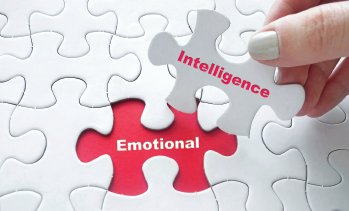Stay Positive and Express Sincere Appreciation
Negative remarks—both casual and not so casual—can set the tone for a negative atmosphere in your practice and can also affect a medical team’s performance. Dr. Friedman mentioned a study that rated a medical team’s performance during a simulation activity when an actor who had been identified as an international expert made negative comments. “Things unraveled and fell apart,” she said. Then they repeated the drill with the actor complimenting the team on what they’d done right.
Explore This Issue
November 2019“When the ‘expert’ was saying positive things,” she said, “they did better than average and beat their own personal best as a team.” While we may think expressing gratitude will be awkward, according to Dr. Friedman, we usually overestimate that and underestimate how surprised and happy the recipient of our gratitude will be.
Dr. Friedman also advised going out of your way to be pleasant to colleagues, saying good morning to everyone at the front desk and in the O.R. She also spoke about regional differences and adapting to the culture in which you work. “I’m from the northeast, and now I work in Houston,” she said. “A nurse once asked me if I was having a good day, and I said the last time I had a good day was 1967.” Dr. Friedman had been kidding but later learned that the nurses thought she was serious. “It was a big cultural revelation that not everybody got me,” she said, adding that some physicians might ask, Why should I be the one who has to change? “You don’t have to,” she said, “but then you won’t get along with everybody.”
Emotional Intelligence Relies on Empathy

© Rei Imagine / shutterstock.com
Empathy is an important factor in emotional intelligence. In response to a complaint, people with a low EQ will talk about their own experiences, hijacking the conversation and making it about themselves. “Never use the phrase, “I know exactly how you feel,” Dr. Friedman said, “because it trivializes the other person’s feelings.” Instead, she suggested saying, “I can only imagine how you feel about this.”
Dr. Friedman added that kindness is an important skill for physicians to work into their careers, and that those with a high EQ understand that everyone they encounter has a backstory. In fact, according to one survey, 72% of patients were willing to pay more for a kind physician; 88% were willing to travel farther to see a kind physician, and 90% would switch physicians after receiving unkind treatment.
“You don’t know what’s going on in anyone’s life. You don’t know their backstory,” Dr. Friedman said. “We have the opportunity to be kind and elevate people or to squash them. I want to be an elevator, not a squasher.”